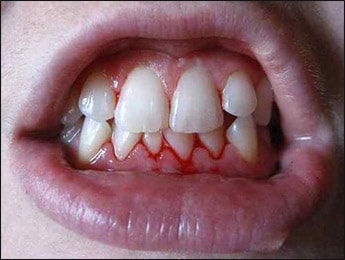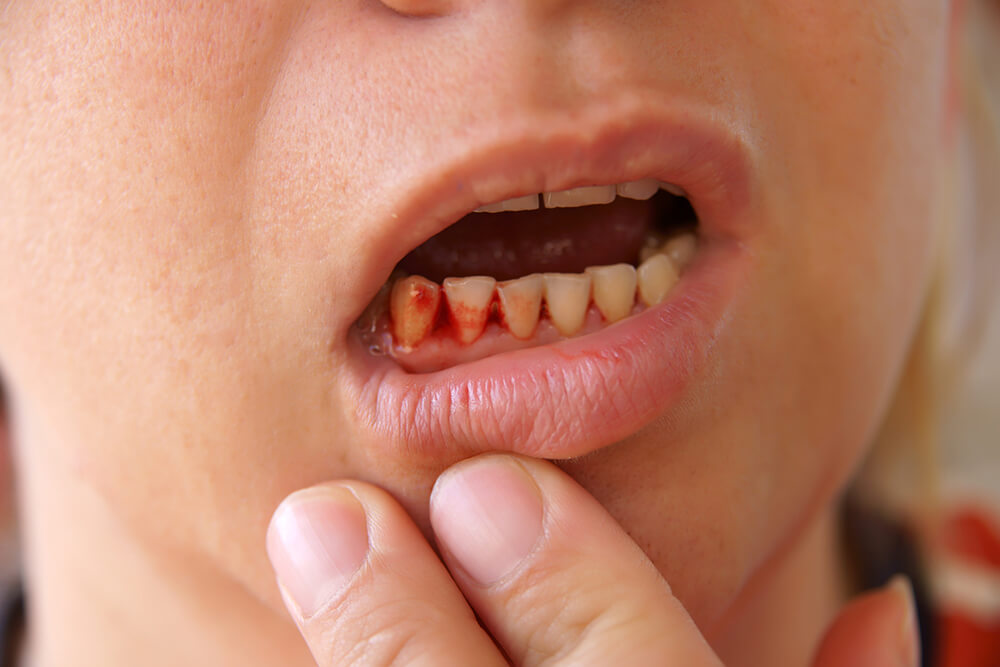6 Effective Ways To Stop Bleeding Gums Naturally
Are you prone to gum bleeding? Is your toothbrush covered in blood stains? It could be caused by something as basic as brushing or flossing incorrectly. Alternatively, it can be a symptom of a major health issue that you are unable to perceive. Many individuals overlook the benefit of caring for your gums, which is an essential component of your dental hygiene routine, even though it is just as vital as caring for your teeth.
What do bleeding gums mean?
Problems such as bleeding gums can be a sign that you are not taking good care of your gums and that you need to take action to help prevent the progression to a more advanced form of gum disease. Since so many people have gingivitis and bleeding gums, people often don't take it seriously enough. But it is really a very important part of your complete oral hygiene or for your oral health.
What causes your gums to bleed?
Bleeding gums are not just ugly to see but can also be painful and make your life standstill. Your gums can bleed because of the following reasons:
Using a wrong toothbrush
One of the most common reasons why your gums are bleeding is your brushing habits. If your toothbrush is too hard or too soft, it can make your gums bleed.
Have gingivitis
An unhygienic mouth can be home to various bacteria, which can lead to plaque build-up on your gum line. The accumulation of plaque on your gums can cause gingivitis, which in turn can cause inflammation and bleeding in the gums.
Using floss
If you are one of those who have just started a flossing routine and your gums aren't used to it yet, you can have bleeding gums.
Diabetes
Bleeding gums can be signs that you are suffering from type 1 or type 2 diabetes. If you have some other symptoms of diabetes along with bleeding gums then consult your doctor.
Vitamin deficiencies
If your body is lacking important vitamins such as vitamin C and vitamin K, you might see your gums bleeding. Try to maintain a healthy diet in this case.
Ways to keep your gums healthy
There are many ways to help improve your oral health and help eliminate bleeding gums. Some of these are:
Brushing with a soft-bristle toothbrush in a circular motion will help stimulate your gums, help prevent bleeding gums, and strengthen the tissue that protects your teeth.
2. Saltwater rinse
Salt has anti-inflammatory and antiseptic properties that help reduce swelling and combat infections that cause bleeding gums. All you need is warm water and some salt; mix the two and rinse your mouth thoroughly with the solution. Use it at least two to three times a day.
3. Oil pulling
Oil pulling is a process of swishing some oil in your mouth to help fight infections that cause your gums to bleed. Rinse with coconut oil or sesame oil to ensure that your mouth is wary of harmful bacterial growth.
4. Maintain proper oral hygiene
Gum bleeding could be an indication of bad dental hygiene. Brushing your teeth at least twice a day and flossing once a day constitute good oral hygiene.
5. Stop smoking
Your dental health may be at risk if you use tobacco. Smoking can impair immunity, which makes it more difficult for the body to fight off plaque bacteria. Gum disease can result from this.
6. Eat foods high in vitamins C and K
Vitamin C and vitamin K-rich meals can boost your immune system and aid in the battle against gum infections that lead to bleeding gums. Increase your consumption of greens and other foods like carrots, limes, spinach, kale, etc. (Vitamin K: 5 Real Vitamin K Benefits, Type, Foods, Deficiency, Overdose and Facts)











